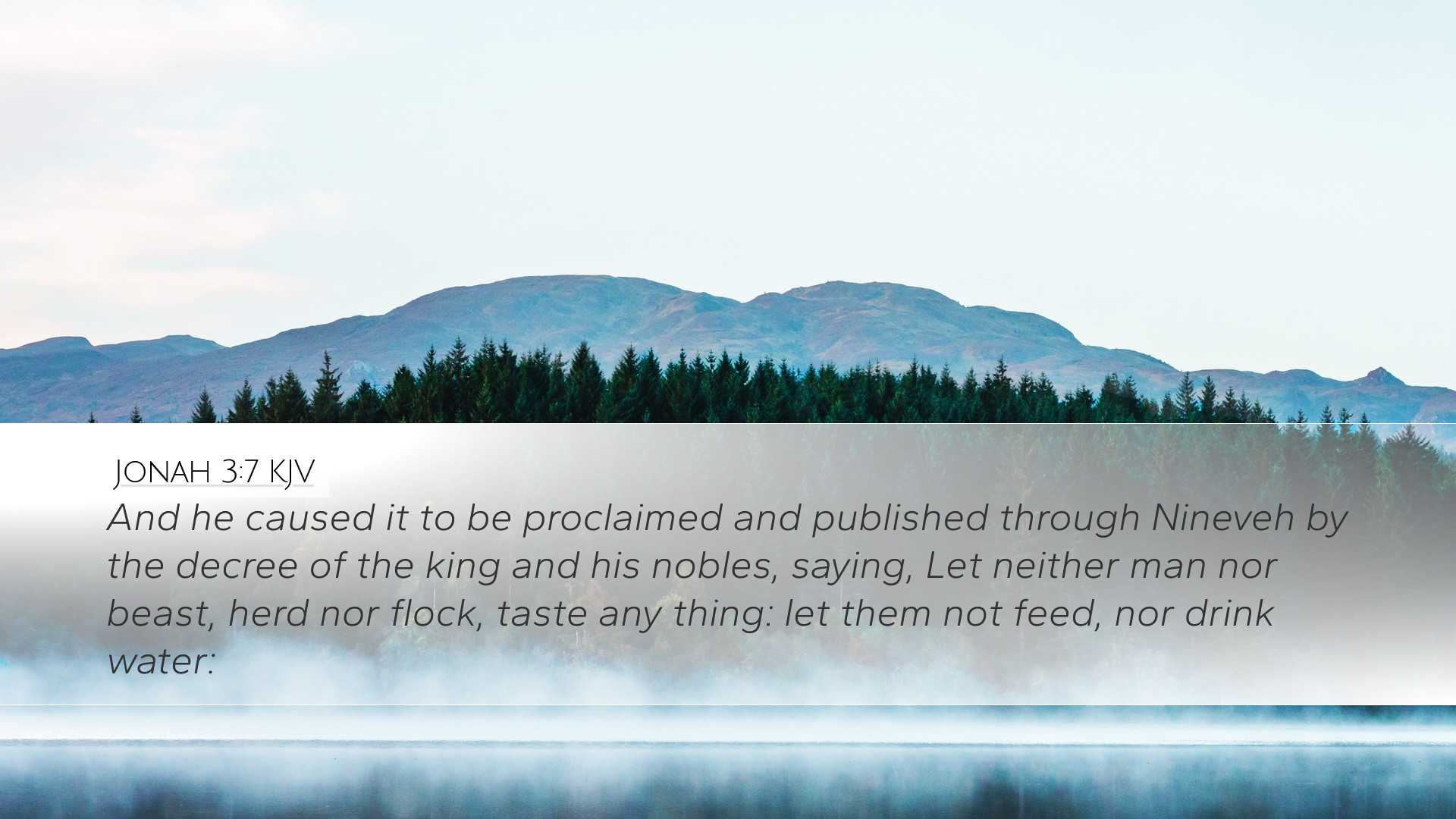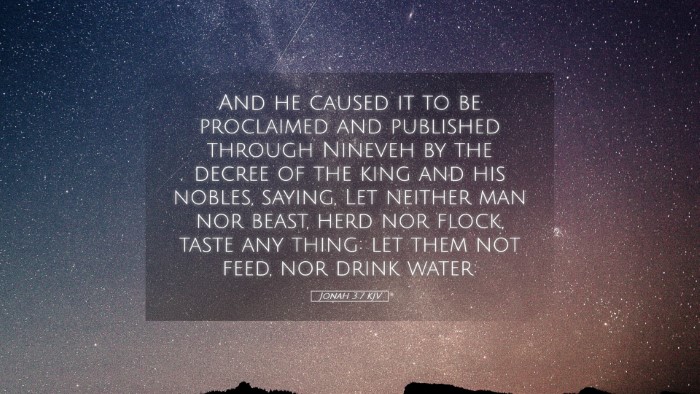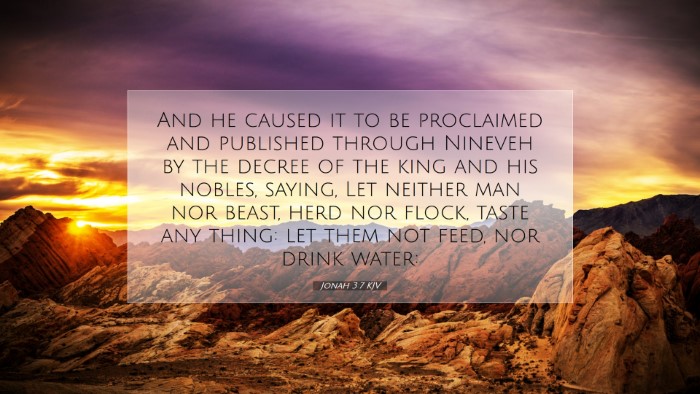Old Testament
Genesis Exodus Leviticus Numbers Deuteronomy Joshua Judges Ruth 1 Samuel 2 Samuel 1 Kings 2 Kings 1 Chronicles 2 Chronicles Ezra Nehemiah Esther Job Psalms Proverbs Ecclesiastes Song of Solomon Isaiah Jeremiah Lamentations Ezekiel Daniel Hosea Joel Amos Obadiah Jonah Micah Nahum Habakkuk Zephaniah Haggai Zechariah MalachiJonah 3:7
Jonah 3:7 KJV
And he caused it to be proclaimed and published through Nineveh by the decree of the king and his nobles, saying, Let neither man nor beast, herd nor flock, taste any thing: let them not feed, nor drink water:
Jonah 3:7 Bible Commentary
Commentary on Jonah 3:7
In the book of Jonah, we find a profound narrative that speaks to themes of repentance, mercy, and divine revelation. Jonah 3:7 is particularly significant as it reveals the depth of the Ninevite's response to Jonah’s proclamation from God.
Text of Jonah 3:7
"And he caused it to be proclaimed and published through Nineveh by the decree of the king and his nobles, saying, 'Let neither man nor beast, herd nor flock, taste anything; do not let them eat, or drink water.'" (NKJV)
Historical Context
This verse comes amidst a powerful moment in the prophetic ministry of Jonah. After initially fleeing from God's command, Jonah finally delivers the message of impending judgment to the city of Nineveh, a symbol of wickedness and enemy of Israel. The decree from the king signifies a city-wide recognition of their sin and a collective response to seek God.
Analysis of the Verse
The decree made by the king of Nineveh is remarkable in several respects:
- Authority and Humility: The king, a figure of authority, humbles himself before God. This act is unusual as rulers often represent pride rather than penitence.
- Collective Responsibility: The proclamation calls for all citizens, including animals, to participate in the fast. This reflects an understanding that sin has consequences that extend beyond individuals to communities and their environments.
- The Urgency of Repentance: The immediacy of the decree highlights the seriousness with which the Ninevites took the warning from Jonah. The call for a fast illustrates their desperation for mercy.
Theological Insights
Drawing from public domain commentaries, we can summarize several theological insights relevant to this verse:
- Repentance: Matthew Henry emphasizes that true repentance involves not only acknowledging sin but also taking actionable steps towards spiritual restoration. The actions of the king and the people illustrate a genuine intent to turn from their wicked ways.
- God's Mercy: Albert Barnes notes that this passage exemplifies the depth of God's mercy. Even the most wicked can turn and receive forgiveness. This is a theme that resonates throughout scripture, highlighting God's desire for repentance over judgment.
- Leadership and Influence: Adam Clarke points out the important role of leadership in guiding a community towards humility and repentance. The king's example serves as a model for all leaders on the importance of recognizing one's failures and calling others to respond appropriately.
Pastoral Applications
For pastors and church leaders today, Jonah 3:7 offers several powerful applications:
- Teaching Repentance: Pastors should emphasize the importance of collective repentance in their congregations, reminding congregants that individual actions contribute to the community's standing before God.
- Modeling Humility: Church leaders must exemplify humility in their leadership, acknowledging their shortcomings and calling church members to do the same.
- Encouraging Urgency: There is an urgency to respond to God’s word. Leaders should inspire their congregations to immediate action in times of crisis or moral decline.
Conclusion
Jonah 3:7 serves as a powerful reminder of the capabilities of faith and repentance. The Ninevites’ response—initiated by a powerful king—demonstrates the profound truth that no one is beyond the reach of God’s grace. It calls leaders and congregations alike to practice humility, recognize the seriousness of sin, and strive towards communal holiness.


